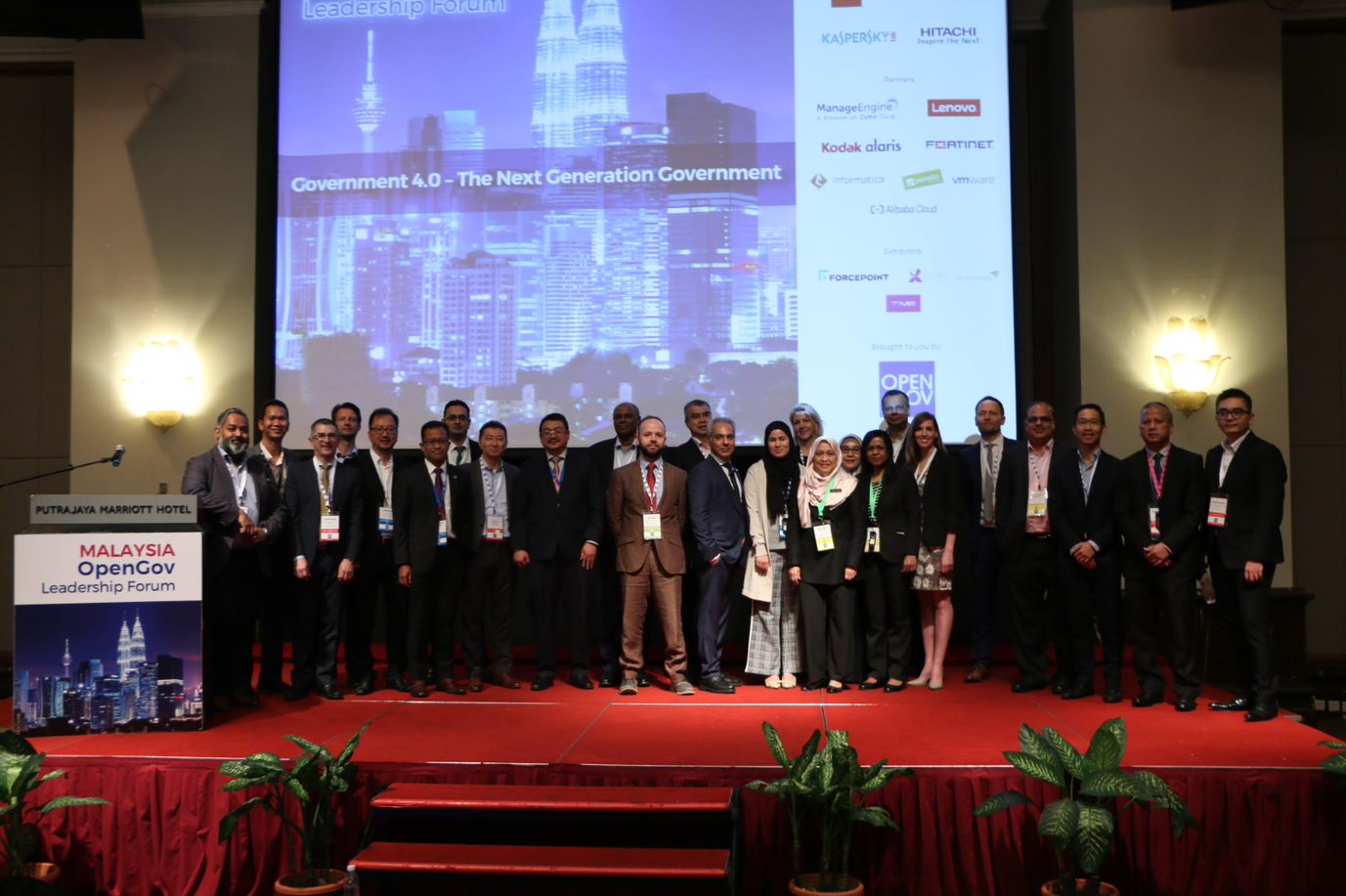
OpenGov Asia held the fifth edition of its Annual Malaysian OGLF on 11 April 2019. Over 300 participants from national and state government ministries, agencies, departments along with healthcare and education sectors to exchange ideas and experiences attended the event.
The forum enabled the delegates to learn from both the speakers and each other.
Gamification
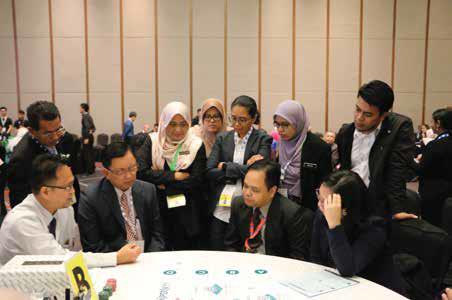
One of the key standout points at any OpenGov event is the introduction of the award-winning `Open Gamification Table’ (OGT), where all registered delegates are assigned to small groups of 10 -12 people per table, circulating among the tables in their respective tracks, thereby getting 30 minutes of quality time to have an in-depth discussion on each topic across the 4 Digital Government tracks.
We integrated gamification with the topic discussions and took the delegate experience to another level.
This format ensures that all the delegates have equal opportunities to participate and contribute their ideas in the presence of their peers and industry.
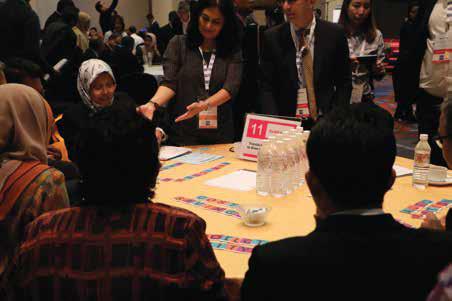
This year, OpenGov leveraged our relationship with key members of the Malaysian Public, Healthcare, Education sectors to facilitate 9 formal one-to-one meetings and 105 informal meetings for our clients.
One table discussed the strategies and best practices for eGovernment Innovation. Dr Feisul Idzwan Mustapha, Deputy Director, Ministry of Health, Malaysia and Kiyoung Lee, Executive Principal, National Information Society Agency, Korea, led the discussion at this table.
At this table, delegates learned the importance of customer-centred service design and delivery, the future of e-Gov and information society, and success factors.
At another table, the topic of discussion was on how to maximise the potential of Big Data and Advanced Analytics in Government. This table was headed by Inthrani Shammugam, IT Director & Chief Information Officer, Ministry of International Trade and Industry, Malaysia; Thillai Raj T. Ramanathan, Chief Technology Officer, MIMOS, Malaysia; and, KC Phua, Core Storage & Data Protection Lead, Asia Pacific, Hitachi Vantara.
They educated delegates on the how government agencies can embark on their own data/ digital modernisation strategies to make information access more agile, flexible, secure and cost-optimised and discussed how data analytics can drive the realisation of smart cities.
There were a total of 16 tables led by experts in their fields discussed how to improve Government functioning with technology. Ultimately, the common goal was to enable the delegates to learn about revolutionary technology they could bring to their relative departments/agencies as well as form important new networks with key players.
Polling results and insights
Throughout the Forum sessions, participants shared their opinions, experience and concerns about the interactive peer learning experience in polling sessions. These polling sessions were designed to better understand the agencies’ areas of interests.
The results showed that 79% of the participants have an annual IT budget between US$ 1 to US$ 15 million. 38% claimed that data management technology would be their main area of investment over the next 12 months.
At present, over 36% named data analytics and software development skills as their most important area of focus, followed by creativity, adaptability and learnability (28%), broad digital literacy across the workforce (17%), change management skills (12%) and cybersecurity skills (7%).
51% of the respondents indicated that the biggest cybersecurity risk in their organisations is still employee negligence. In addition, 58% claimed that their organisations are well-prepared for a cyber threat but not sure if the organisation can withstand an infiltration.
Participants indicated that the three main challenges they face are: legacy infrastructure holding back our service delivery (28%), data sharing-cross agencies (27%), and upscaling internal talent (25%).
With regards to their long-term cloud strategy, 63% aim to use a hybrid cloud model.
Most respondents (85%) claim their main concern in adopting the public cloud is concerns on data privacy, security and compliance. Despite this, a majority (36%) claim their organisations are in the process of implementing a cloud strategy.
With regards to AI implementation, most respondents (44%) said they do not use AI in their agencies. A majority (67%) indicate that the lack of knowledge and internal skills set is the major challenge in adopting AI. However, 60% stated that business intelligence is the AI technology that they plan to adopt.
Panel Sessions
In addition to learning from the speakers’ talks, participants were able to learn more about revolutionary ideas and technologies in three panel discussions.
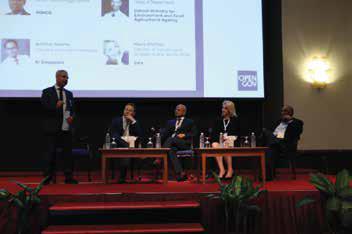
The first panel session was on the topic No-Collar Worker – Journey into AI and Automation. This was moderated by Mohit Sagar, Group Managing Director & Editor in Chief, OpenGov Asia.
The panel consisted of Thillai Raj T Ramanathan, Chief Technology Officer from MIMOS, Adam Grønlykke Mollerup, Head of Department from Danish Ministry for Environment and Food, Agricultural Agency, Adhiraj Saxena, Industry Innovation Manager from AI Singapore and Marie Phillips, Director of Industry and Strategy – Public Sector APAC from Infor.
During this thought-provoking discussion, the panel talked about the introduction of cognitive technologies, automation and Artificial Intelligence (AI) across the public sector. They discussed how the augmentation of government services with the no-collar workforce will take shape. It is projected that this workforce will assume responsibility for repetitive administrative tasks, freeing up human staff to devote themselves to more strategic activities.
The session explored how these technologies had the potential to ramp up productivity gains, cost savings and department-wide efficiencies as they become more commonplace.
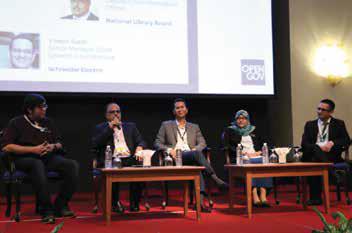
The second panel was on The Dawn of Edge Computing – Its Impact on How Government Operates. This panel also moderated by Mohit Sagar, Group Managing Director & Editor in Chief, OpenGov Asia.
The panellists were Dr. Suhazimah Binti Dzazali, Deputy Director General – Information and Communication Technology, Malaysian Administrative Modernisation and Management Planning Unit, Hizam Ghazali, Head Group Digital Centre, Telekom Malaysia, Ramachandran Narayanan, Deputy Chief Information Officer, National Library Board of Singapore, Arthur Kent Raymond from Sabah Net and Vineet Sarin, Senior Manager-DCIM Systems & Architecture from Schneider Electric.
The panel discussed how edge computing, as it is being rapidly adopted across the board, has the potential to revolutionise how data is collected, distributed, processed and analysed.
The key takeaway from the discussions was that the technology is accessible and cost-effective. Panellists urged the delegates to consider the issues at hand and what the agencies are trying to achieve and then go for it.
The third and final panel session was on the topic of Cyber Resiliency in the Era of Emerging and Disruptive Technologies.
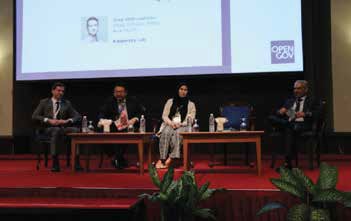
This panel was moderated by Mohit Sagar, Group Managing Director & Editor in Chief, OpenGov Asia. The panellists were Dato’ Dr Haji Amirudin Bin Abdul Wahab, Chief Executive Officer, CyberSecurity Malaysia, Shariffah Rashidah Binti Syed Othman, Director – Cyber Security Policy and International Cooperation Division, National Cyber Security Agency and Oleg Abdurashitov, Head of Public Affairs – Asia Pacific, Kaspersky Lab.
During this panel, experts discussed the establishment of a well-structured ICT framework, implementation of plans, building manpower capabilities and enabling technologies, how emerging and disruptive technologies are changing the landscape and the need for cooperation from different sectors of society and how it is necessary for achieving this common goal.
The key takeaway was that investing in educating citizens should be the number one priority. Additionally, a holistic approach to cybersecurity that manages all the three pillars – People, Process and Technology – is critical.
Overall, delegates left these panel sessions with a better understanding of the roles of AI, the Edge Computing and the need for greater Cyber Resiliency as well as the best methods of implementing the new technological tools.
















